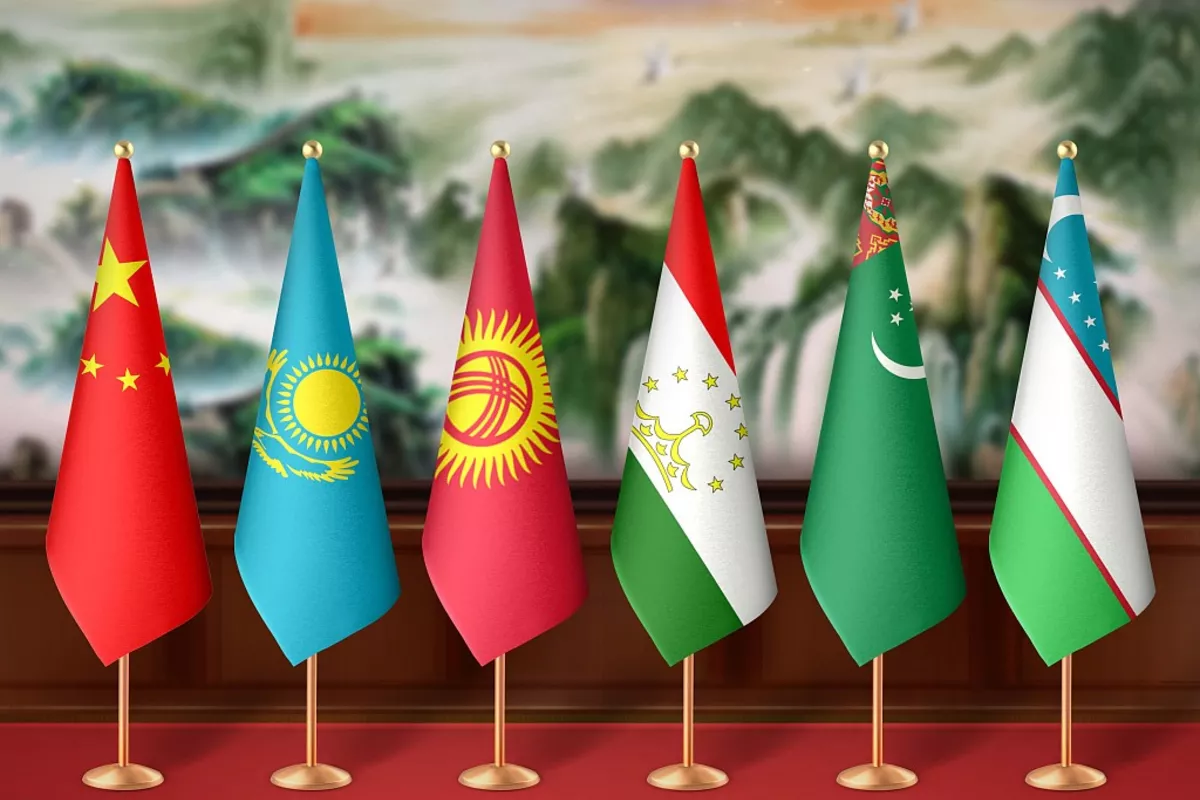
Photo/VCG
In May 2023, the first-ever China-Central Asia Summit was held in Xi'an, in northwest China's Shaanxi Province. This event marked a significant milestone in the relationship between China and the five Central Asian nations - Kazakhstan, Kyrgyzstan, Tajikistan, Turkmenistan, and Uzbekistan.
The second summit will convene next week in Astana, capital of Kazakhstan, presenting a new opportunity for China and Central Asia to deepen strategic trust, enhance practical cooperation, and jointly contribute stability and positive momentum to a world fraught with uncertainty. With a steady commitment to progress, the two sides are poised to write a new chapter of mutual benefit and shared development, The Caspian Post reports citing CGTN.Promoting an equal, orderly multipolar world
The upcoming summit is conducive to advancing the construction of an equal and orderly multi-polar world and providing China-Central Asia wisdom for the transformation of the international order and global governance.
As conflicts such as the Russia-Ukraine conflict and the renewed Israeli-Palestinian violence drag on, the global community faces increasingly complex security dynamics and fierce geopolitical rivalries. These challenges not only shape the international order, but also exert pressure on regional governance mechanisms, particularly around China's periphery. Against this backdrop, China has consistently prioritized Central Asia as a key partner in building a community with a shared future.
The summit is expected to highlight the principles of universal security and the Global Security Initiative, firmly opposing external interference in regional affairs and resisting the spread of extremism, separatism, and terrorism - commonly referred to as the "three forces." By strengthening counterterrorism, cybersecurity, and digital governance cooperation, China and Central Asia will work to resolve regional security dilemmas and establish a multi-layered regional security network that upholds peace, sovereignty, and long-term stability.
Driving global green economic transformation
The upcoming summit will contribute the China-Central Asia strength to the global green economic transformation.
China's efforts to green its economy have made it a global leader in clean energy innovation, particularly in sectors such as hydrogen power, solar and wind energy and electric vehicles. These advancements are now extending to its cooperation with Central Asia - a region historically dependent on fossil fuels but now actively pursuing a green transition.
From wind and hydro projects in Kazakhstan and Uzbekistan to the delivery of 1,000 Chinese-made new energy buses in Tashkent, China's support has empowered Central Asian nations to diversify their energy mix, accelerate their energy transition, and build greener, more resilient economies. These initiatives align with the "green innovation" goals set at the 2022 summit, demonstrating a shared commitment to building a community of life for humanity and nature.
Championing the voice of the Global South
In a global environment marked by rising protectionism, the China-Central Asia partnership represents a new model of diplomatic engagement - one that respects independence, promotes mutual benefit, and amplifies the voice of the Global South.
China has been a steadfast supporter of South-South cooperation. From outlining eight major initiatives at the Conference Marking the 70th Anniversary of the Five Principles of Peaceful Coexistence to advocating for joint modernization during the virtual summit commemorating the 30th anniversary of the establishment of diplomatic relations between China and the five Central Asian countries in 2022, China has consistently supported the modernization efforts of Global South countries through concrete actions.
With the Global South now accounting for over 40 percent of global GDP, its collective voice is becoming increasingly influential in reshaping global governance. The China-Central Asia Summit mechanism reinforces this momentum by encouraging regional agenda-setting, resisting external impositions, and contributing to a fairer, more balanced international order.
Creating a new model of educational cooperation
Following the first summit, China established the China-Central Asia Talent Development Scholarship and the China-Central Asia University Alliance. During the first China-Central Asia Education Ministers' Meeting, held in May, the two sides also announced the launch of the China-Central Asia Industry-Education Integration Alliance.
The upcoming summit will further this vision by engaging younger generations through initiatives like "New Era of the Great Silk Road" China-Central Asia Youth Forum. With the help of digital platforms such as TikTok and Instagram, these youth exchanges are crafting a new Silk Road narrative that resonates with Generation Z and helps build an education community rooted in mutual respect, lifelong friendship, and shared opportunity.
Share on social media